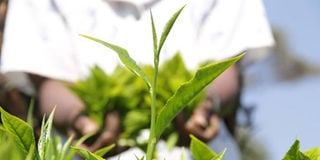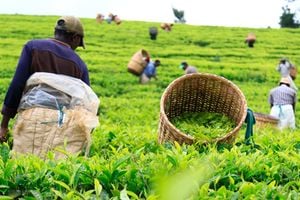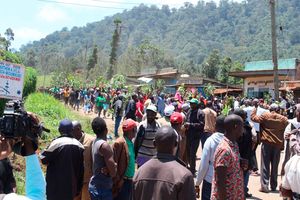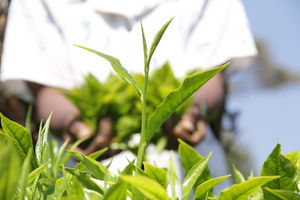
Orthodox beverages that include white and purple teas are expensive because of the limited volumes produced in the country.
The East African Tea Trade Association (EATTA), which runs the weekly Mombasa tea auction, has formed a committee to drive the sale of specialty orthodox tea at the exchange amid plummeting fortunes from trading in traditional black tea.
EATTA managing director George Omuga said they target to introduce the specialty tea at the auction by the end of this year.
"We were to begin in September but some technical issues were still pending but before the end of this year we shall be launching running out an auction, orthodox tea auction, a packers tea auction, and then the specialty auction," Omuga said.
"At the moment we have producers who are producing purple tea and we want to expose these producers to the world so that the world appreciates what we have as an auction and what producers in Africa have as producers" the official added.
Orthodox tea refers to the tea that is made or processed using a traditional method which includes plucking, withering, rolling, oxidation, and drying. Orthodox beverages that include white and purple teas are expensive because of the limited volumes produced in the country against high demand globally.
Specialty tea earns premium returns for farmers amid growing demand for its health benefits. Unlike black tea, purple tea is not fermented in processing and contains anthocyanin and other substances which some experts say have health benefits, such as helping with weight loss.
Kenya is the only country in the world that produces purple tea, but the country is yet to tap its full potential even with a ready market.
Mr Omuga said that the committee will review policies on the quantity, pricing, and standards of the products to be presented for sale as a strategy to give the auction a competitive edge.
"We don't want to present orthodoxies the same way other countries have been presented. So we have formed the committee from last week to go through the options structure and evaluation process," the MD said.
The Mombasa auctions attract principal overseas interest from the major tea-consuming countries in the world with the United Kingdom, Pakistan, Egypt, Afghanistan, Sudan, Iran, Yemen, United Arab Emirates, Ireland, Somalia, Canada, and Singapore as the major players. The buyers are spread over more than 50 countries internationally.
China still dominates white tea production, but Kenya and other growers are increasing cultivation.
The Kenya Tea Development Agency (KTDA) two years ago revealed that it was seeking Sh800 million from the government to expand its production line for high-value specialty tea following a surge in demand in the international market.
KTDA has 12 factories that are currently making orthodox tea and it wants to roll out the processing of this type of beverage to all its factories.
The agency has been producing about five million kilogrammes from the factories where the special processing lines for this tea have been installed.
The tea auction in Mombasa has been hit by a sustained pile-up of unsold tea over the last two years amid subdued demand for the black tea sold there.
Kenya is the world’s leading exporter of black tea, but oversupply and variable weather conditions often lead to global price fluctuations, encouraging diversification into niche varieties such as purple and white tea.
The Tea Board of Kenya(TBK) is set to build an incubation centre in Kericho for specialty and value-added tea as part of an initiative to boost farmers’ earnings from the beverage.
The TBK incubation project is being undertaken in collaboration with the Tea Research Institute in Kericho, where the centre will be set up for the development of value-added specialty tea products and training stakeholders.
“Specific objectives of the project include to promote the establishment of cottage factories for the manufacture of special tea products; capacity to build enterprises on secondary tea processing, branding, profiling, and packaging; and promoting product diversification based on market intelligence and consumer preferences by increasing the tea sector product range,” TBK said in a recent disclosure.












